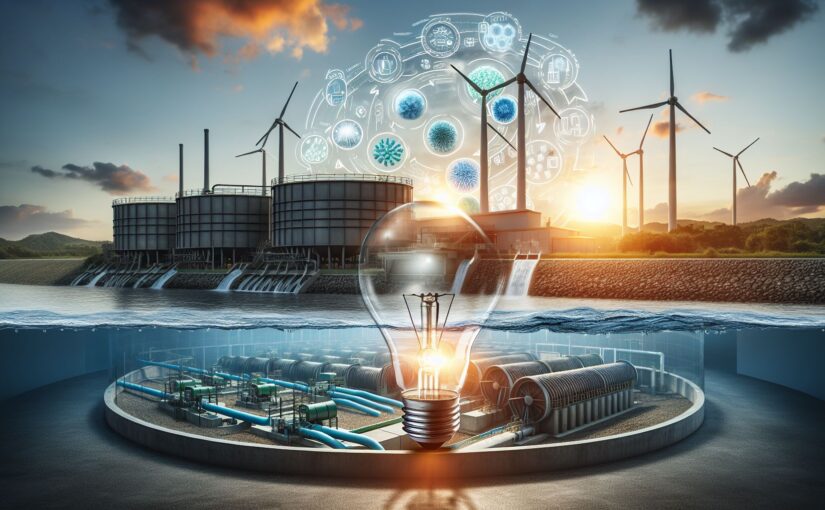Piles of waste are usually associated with pollution and the emission of greenhouse gases, contributing to climate change. But what if the tables could turn? What if wastewater could become a major player in renewable energy generation? This idea might sound far-fetched, but it is becoming more of a reality thanks to innovative scientific research and development.
Wastewater: A Potential Energy Source
Wastewater generated from human activities such as bathing, washing, cooking, and industrial operations is an abundant substance that we often dismiss. However, it’s packed with valuable resources such as organic compounds, nutrients, and even energy in the form of biogas that can be harnessed [^1^].
Harnessing Energy from Wastewater
One exciting approach to extract energy from wastewater is through the use of Microbial Fuel Cells (MFCs). MFCs are devices that use bacteria as the catalysts to oxidize organic and inorganic matter and generate current. By converting chemical energy to electrical energy, MFCs can proficiently reclaim energy from wastewater while using the remaining byproduct for other useful purposes like irrigation [^2^].
The Dual Benefit: Energy and Environment
Apart from being a renewable energy source, using wastewater for energy generation is also a sustainable waste management strategy. This process drastically reduces the quantity of waste that gets dumped into landfills or into the ocean, thus curbing environmental pollution.
Moreover, the dependency on fossil fuels for energy can be potentially curbed with widespread usage of MFCs, thereby helping reduce CO₂ emissions in the long run and contributing to climate change mitigation.
Challenges and Future Prospect
While microbial fuel cells present a promising future, they are currently hindered by technical and economical challenges, such as low power output and high construction and maintenance costs. However, thanks to new technological advancements and increased funding, it’s possible that we will see a future where wastewater treatment plants double as power stations.
Despite the challenges, the benefits and potential of transforming wastewater into renewable energy cannot be ignored. It is an innovative and sustainable solution that has the potential to revolutionize the energy and wastewater management sectors. Mitigating the crisis of climate change and energy shortage requires a multidimensional approach, and converting wastewater to renewable energy can undoubtedly be one of those dimensions.
In conclusion, wastewater is no longer merely an issue of waste management—it is an untapped resource that could bolster our renewable energy sources. By harnessing renewable energy from wastewater, we move one step closer to a more sustainable and energy-equipped future.
[^1^]: Wastewater: The Untapped Resource
[^2^]: Renewable Energy Generation from Waste Waters
[^3^]: Microbial fuel cells: From fundamentals to applications
